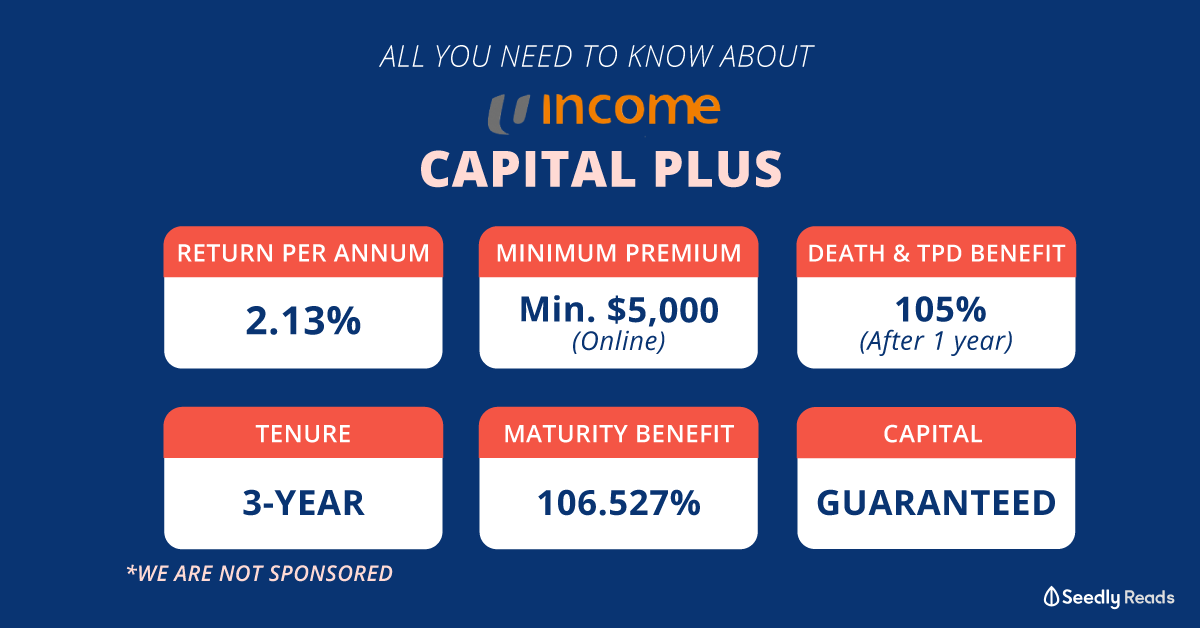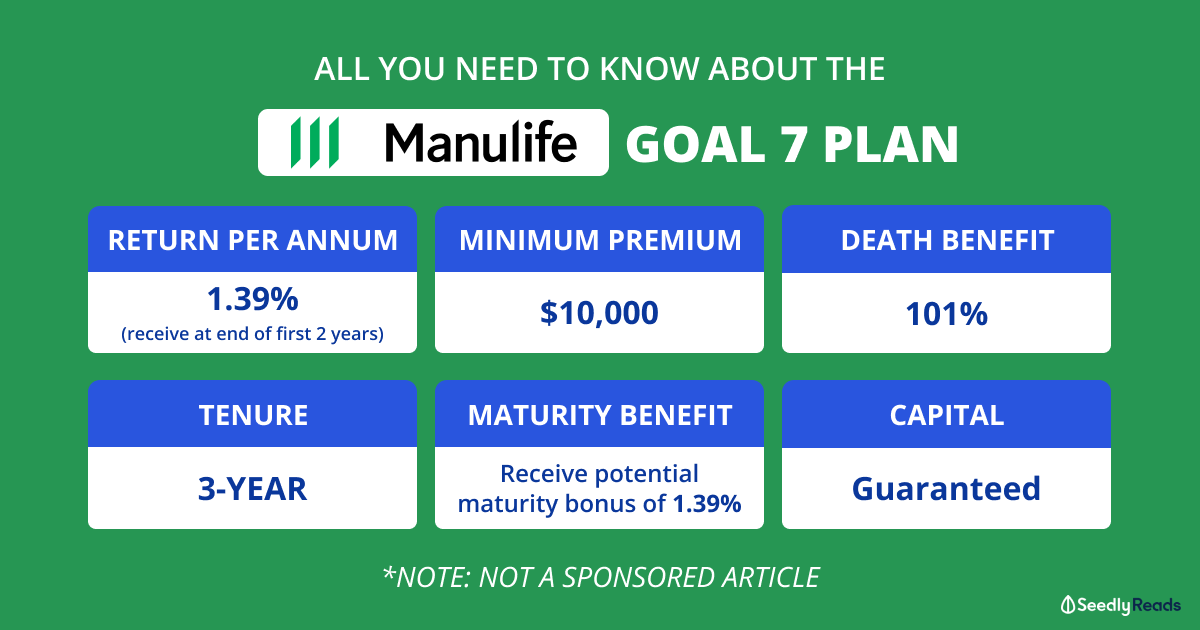Advertisement
Anonymous
For a retirement/legacy fund that has a guaranteed yield of 1.83% vs another plan with gtd yield of 1.39%. Does this figure matter in the decision if both plan par fund average return is above 4%.
Since the par fund has an average return of above 4% for the last 10 years, the par fund performance is above the guaranteed yield. So if 2 plans provide an illustrative return of similar total return (guaranteed + non-guaranteed) base on lower and upper tier, should I look at the guaranteed yield in deciding which retirement insurance plan to buy.
5
Discussion (5)
Learn how to style your text
Reply
Save
Pang Zhe Liang
01 Jul 2021
Lead of Research & Solutions at Havend Pte Ltd
There are a few things going on in a participating policy, so let's try to understand each part.
Guaranteed Section
Regardless of the insurer's participating fund performance, you will receive the monies in the guaranteed column of the policy illustration.
Non-Guaranteed Bonuses
For this purpose, it will be good to understand what is a participating fund and how it works. For instance, an unexpectedly high claim experience may jeopardise the bonus scale despite a good year of fund performance. Additionally, a high expense ratio will mean that the participating fund has to work harder to that end.
More Details: What is a Participating Fund Singapore
Generally, a participating fund's objective is to provide stable returns over the life of your participating poilcy. Accordingly, the insurer may apply smoothing of bonuses to allow you to enjoy stable returns over time.
More Details: Smoothing of Bonuses Singapore
Given so many variations in the non-guaranteed section of the policy illustration, it may not be possible to look at numbers alone to determine which plan is better. After all, these numbers are for illustrative purposes only.
More Details: Illustrated Investment Rate of Return for a Participating Policy Singapore
Besides, the guaranteed section of the plan itself may not be enticing for you to part with your money and buy into such a policy.
With this in mind, you may wish to consider to dive deeper, e.g. to understand the size of the participating fund, its track record. This is so as to help us ascertain its financial soundness and to give us the confidence that it will provide us with the projections in due time.
I share quality content on estate planning and financial planning here.
Reply
Save
Write your thoughts
Related Articles
Related Posts
Related Posts
Advertisement








We must understand, in investment there is no guaranteed return. When someone offer a guaranteed return, it is probably already priced in to your premium. Every policy underlying are investment, most probably unit trust. Thus i not a fan of buying plan, not worth.
So to answer your question. A logical approach, I would look at the premium i need to pay, if the total return are the same, guaranteed yield is higher, and the premium i need to pay is lower, then i will choose that plan.